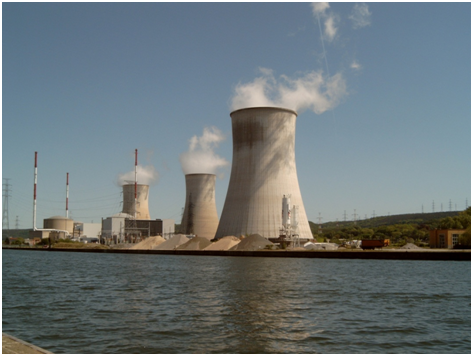I recently posted a list of forty problems with nuclear power. Several of my concerns had to do with security. One in particular dealt with the fact that nuclear power plants would make great targets for terrorists. This concern is now in the headlines because of the recent suicide bombing in Brussels, Belgium. The security of Belgium nuclear power plants has been called into question.
Today, at about eight AM Brussels time, two terrorists wearing suicide vests detonated their explosives near check-in desks at the Brussels international airport. The shockwave generated by the explosions tore through the terminal building blowing out windows and dislodging ceiling tiles. Fourteen people were killed and dozens more were injured. About eighty minutes later, another terrorist detonated a suicide vest at a Metro station about four hundred yards for the headquarters of the European Union in central Brussels. This attack killed twenty people and injured many more. In all, the two attacks killed thirty four people and injured one hundred and seventy. ISIS claimed credit for the attack. The French government shut down the border with Belgium following the attack. Belgium seems to be a center for Muslim terrorist activity in Europe.
The Tihange nuclear power plant is located about fifty miles south of Brussels. It is operated by a French utility company named ENGIE. Hours after the attack the Belgium government sent a request to ENGIE to evacuate the plant. It was originally reported that the entire staff of the power plant was being evacuated but it was subsequently learned that only the non-essential staff had left. Although the government had no intelligence that any sort of attack was planned for the nuclear power plant, Belgian authorities decided to evacuate the plant as a precautionary measure.
The Belgian security services had seen indications that ISIS was interested in Belgium's nuclear facilities. Following the capture of one of the Paris terrorist attackers hiding in Belgium, video surveillance tapes of a senior Belgian nuclear official were found in terrorist's house. The authorities speculated that ISIS was considering kidnapping the official and using him to gain access to secure areas of a Belgian nuclear research facility. If ISIS was able to obtain radioactive materials from the research facility, they would be able to construct a "dirty" bomb. Detonation of such a bomb in a major European city would cause wide-spread chaos and require that that city be essentially abandoned at great cost.
If terrorists seized control of a nuclear power plant, they might be able to deliberately cause a nuclear disaster provided they had sufficient knowledge of nuclear technology. There would be a number of ways that they could sabotage a nuclear power reactor to cause it to overheat, melt down and cause explosions that would release radioactive materials over the countryside. The resulting public panic and evacuation would be chaotic and the radioactive pollution of the countryside would cause environmental damage and incur huge costs.
Given the increasing terrorist activities in Europe being carried out by ISIS and other groups, nuclear power plants represent a very serious liability as targets for attacks. Sabotage of a nuclear power plant would result in more damage and cost that just about any other facility except perhaps a major dam.
Belgium Tihange nuclear power plant:
